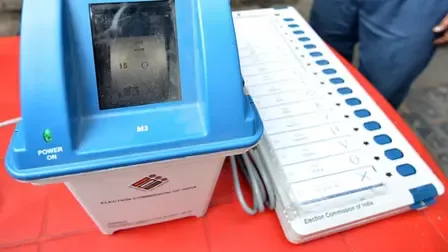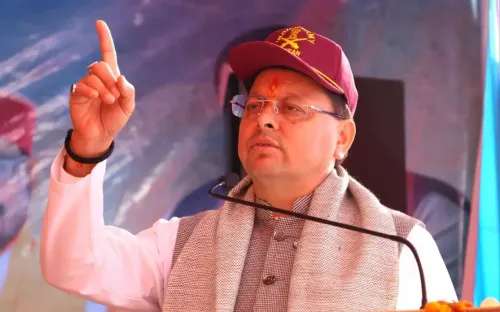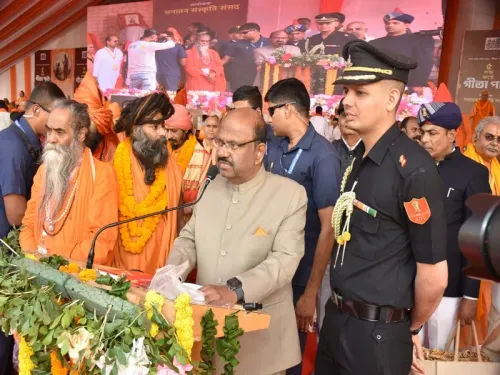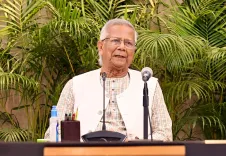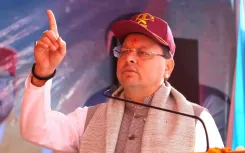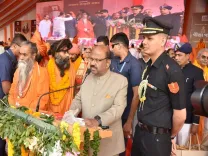Why Did Delhi CM Order a 3-Hour Afternoon ‘Heat Break’ for Construction Workers?
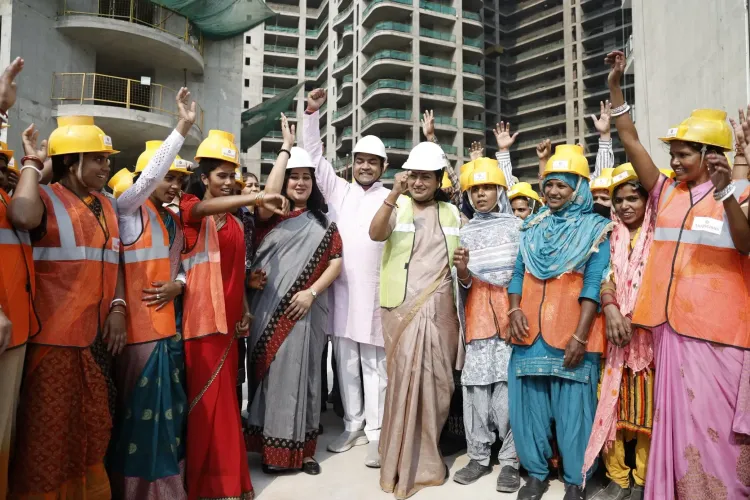
Synopsis
Key Takeaways
- Three-hour heat break for construction workers announced.
- Installation of 3,000 water coolers at strategic locations.
- 500 creches planned for safe childcare.
- Increased minimum wages for workers.
- Focus on health checks for workers and families.
New Delhi, May 1 (NationPress) Ensuring the well-being and safety of workers, Delhi Chief Minister Rekha Gupta announced that her administration has instructed employers to provide a three-hour 'heat break' for construction workers from noon to 3 p.m. due to the intense summer heat.
During a Labour Day interaction with workers, CM Gupta emphasized that both the BJP government at the Centre and in Delhi are dedicated to safeguarding the rights and interests of labourers, pledging health checks for every worker and their families at their construction sites.
“Our administration has introduced special initiatives for women in the workforce, including plans to establish 500 creches for safe childcare during work hours,” she shared, detailing the labour-friendly policies implemented by the Delhi government.
“Additionally, we are installing 3,000 water coolers in public areas and around construction sites to help workers manage the heat effectively,” she stated at a Workers' Felicitation Ceremony event in Karol Bagh, organized by the Department of Labour to celebrate the contributions of workers crucial to the city's progress.
She pointed out that leading up to Labour Day, the Delhi government had also increased the minimum wages for workers.
CM Gupta further noted the government's commitment to ensuring that the children of labourers have access to quality health and educational facilities.
On social media platform X, she remarked, “The contributions of our labourer brothers and sisters to India's development are invaluable. Your commitment fuels the progress of our nation and opens new avenues for growth. Let us pledge together today to continually advocate for the respect, rights, and welfare of our workers.”
Labour Minister Kapil Mishra commented that Labour Day festivities are being held in the city for the first time in seven years.
“The previous government had the resources but failed to organize any events to honor workers on Labour Day,” he asserted.


